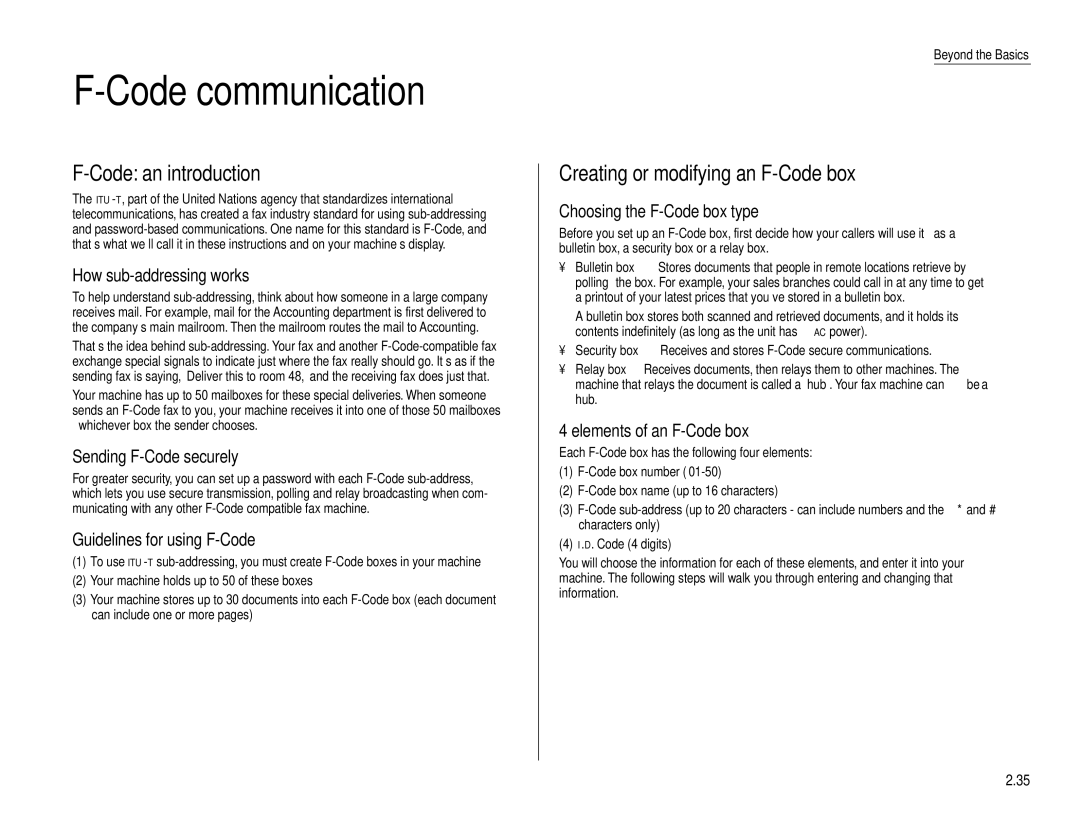
F-Code communication
F-Code: an introduction
The
How sub-addressing works
To help understand
That’s the idea behind
Your machine has up to 50 mailboxes for these special deliveries. When someone sends an
— whichever box the sender chooses.
Sending F-Code securely
For greater security, you can set up a password with each
Guidelines for using F-Code
(1)To use
(2)Your machine holds up to 50 of these boxes
(3)Your machine stores up to 30 documents into each
Beyond the Basics
Creating or modifying an F-Code box
Choosing the F-Code box type
Before you set up an
•Bulletin box — Stores documents that people in remote locations retrieve by polling the box. For example, your sales branches could call in at any time to get a printout of your latest prices that you’ve stored in a bulletin box.
A bulletin box stores both scanned and retrieved documents, and it holds its contents indefinitely (as long as the unit has AC power).
•Security box — Receives and stores
•Relay box — Receives documents, then relays them to other machines. The machine that relays the document is called a “hub”. Your fax machine can be a hub.
4 elements of an F-Code box
Each
(1)
(2)
(3)
(4)I.D. Code (4 digits)
You will choose the information for each of these elements, and enter it into your machine. The following steps will walk you through entering and changing that information.
2.35
